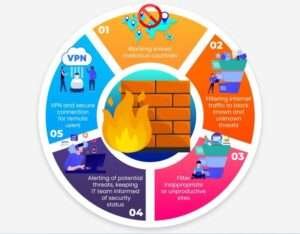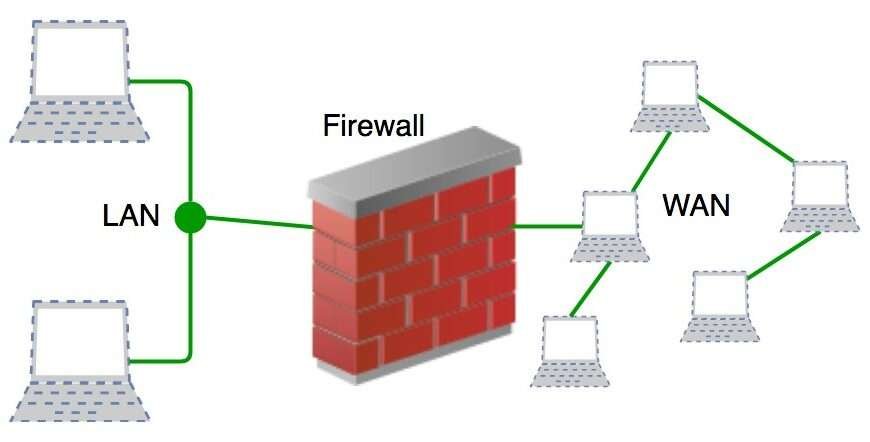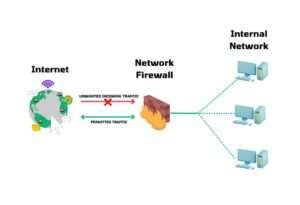In today’s digital age, securing your network is more critical than ever. Among the various tools and techniques available, firewalls play a pivotal role. This blog aims to explore the firewalls meaning, provide examples of firewalls, explain their importance in network security, and delve into different types, including managed firewalls and next-generation firewalls. We’ll also discuss specific brands like WatchGuard firewalls and highlight what firewalls protect against.
Firewalls Explained
A firewall is a network security device that monitors and filters incoming and outgoing network traffic based on an organization’s previously established security policies. Essentially, a firewall acts as a barrier between a trusted network and an untrusted network, such as the Internet. Firewalls in network security are crucial because they prevent unauthorized access to or from private networks, thereby protecting sensitive data.
Types of Firewalls
Firewalls come in various forms, each serving different purposes and offering different levels of protection. Understanding these types can help in choosing the right firewall for your needs.
Packet-Filtering Firewalls
This type of firewall examines packets (units of data) and prevents them from passing through if they don’t meet established security rules. Packet-filtering firewalls are the most basic form, offering a primary level of security.
Stateful Inspection Firewalls
These firewalls are more advanced than packet-filtering firewalls. They track the state of active connections and make decisions based on the context of the traffic. This method provides more robust security by monitoring the state of network connections and filtering based on state, port, and protocol.
Proxy Firewalls
A proxy firewall acts as an intermediary between end systems and the internet. It can mask the client’s IP address and provide additional functions like content caching and filtering, which can help prevent direct attacks on the network.
Next-Generation Firewalls (NGFW)
Next-generation firewalls combine traditional firewall technology with additional functionalities like encrypted traffic inspection, intrusion prevention systems (IPS), and deep packet inspection. NGFWs are designed to detect and block sophisticated attacks by enforcing security policies at the application level.
Managed Firewalls
Managed firewalls are services provided by third-party vendors who handle firewall infrastructure deployment, configuration, monitoring, and maintenance. This service benefits organizations that need more resources or expertise to manage firewalls internally. Managed firewalls ensure that security policies are consistently enforced and updated in response to emerging threats.
WatchGuard Firewalls
WatchGuard firewalls are renowned for their robust security features and ease of use. They offer a range of firewall products suitable for small businesses to large enterprises. WatchGuard’s products are known for their comprehensive security services, including threat detection and response, advanced malware protection, and secure Wi-Fi.
Firewalls and Network Security

Firewalls in network security are indispensable. They serve as the first line of defense against cyber threats by controlling the flow of traffic between networks and preventing unauthorized access. Firewalls also help in monitoring network activity, detecting potential breaches, and logging events for further analysis.
Firewalls Are Used to Protect Against

- Unauthorized Access: By filtering traffic, firewalls prevent unauthorized users from gaining access to private networks.
- Malware and Viruses: Firewalls can block traffic that is known to carry malicious software.
- Data Theft: By controlling the flow of data, firewalls help prevent sensitive information from being sent out of the network.
- Denial of Service (DoS) Attacks: Firewalls can detect and block unusual traffic patterns that may indicate a DoS attack.
Examples of Firewalls
There are numerous examples of firewalls in the market, each with unique features tailored to different security needs. Some notable examples include:
- Cisco ASA: Known for its robust security capabilities and integration with other Cisco products.
- Fortinet FortiGate: Offers high-performance protection with extensive threat intelligence.
- Palo Alto Networks PA-Series: Features advanced application-level security and threat prevention.
- WatchGuard Firebox: Provides comprehensive security with user-friendly management tools.

Understanding the various types of firewalls and their roles in network security is essential for protecting your digital assets. From basic packet-filtering firewalls to sophisticated next-generation firewalls, each type offers different levels of security. Managed firewalls can be a valuable solution for organizations needing expert management, while brands like WatchGuard firewalls provide reliable and robust options for diverse needs.
Investing in the right firewall is a critical step in safeguarding your network against ever-evolving cyber threats. By leveraging firewalls effectively, you can ensure a secure and resilient network environment.






